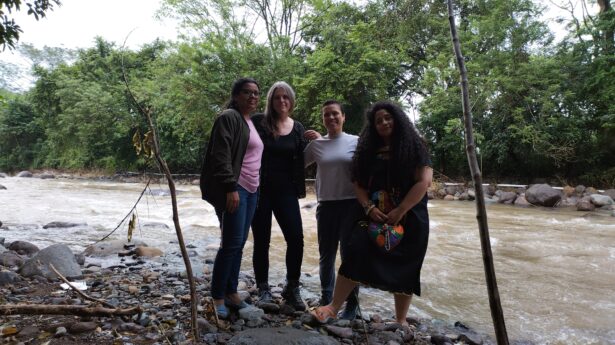The Unitarian Universalist Service Committee advances human rights through grassroots collaborations.
Illegal Mining in Argentina Puts Drinking Water at Risk

June 7, 2011
The Center for Human Rights and Environment (CEDHA), a UUSC partner based in San Juan Province, Argentina, released a report on drinking-water resources that are at risk from mining operations in fragile zones where the glaciers are receding due to climate change.
“It’s like the California Gold Rush all over again,” says Daniel Taillant, founder of CEDHA and author of the report. “Miners are crisscrossing the Andes in search of precious metals, sometimes indiscriminately cutting through terrain without regard of the surroundings. The problem of this model is further aggravated due to the region’s governance systems’ lack of capacity and political will power to ensure that mining operations are fully complying with the law.”
CEDHA is calling on Xstrata to cease all activity until a proper glacier impact assessment can be carried out, as is mandated by the new glacier law.
A nonprofit organization based in Córdoba, Argentina, CEDHA is working to create a more harmonious relationship between people and the environment. The organization works to protect human rights, strengthen judicial and normative frameworks on social and environmental protection, and encourage the compliance and enforcement of environmental law by state and corporate actors.
The report on El Pachón, a mining project of the multinational Xstrada Copper Co., includes contributions of glacier specialists. The report map plots more than 200 glaciers and extensive permafrost zones. The El Pachón project can be clearly seen using Google Earth at the following coordinate address, which can be typed into the search “fly to” box in Google Earth: 31 45 5.26 S, 70 26 2.61 W.
“El Pachón’s situation is extremely delicate” says Taillant.”The project is in violation of the law. At least a dozen or more glaciers will be completely destroyed by project implementation if it moves forward as is. And then there is the extensive past impact from roads which needs to be repaired.”
“Rock glaciers, like the ones impacted by Xstrata, are a fantastic adaptation by mother nature to conserve water in otherwise dry and warmer months,” Taillant continues. “The meltwater from these glaciers provide a steady flow of drinking and irrigation water to local communities long after winter snow has melted! Rock glaciers survive quite well at much lower elevations, incrementing our ice reserves.”

